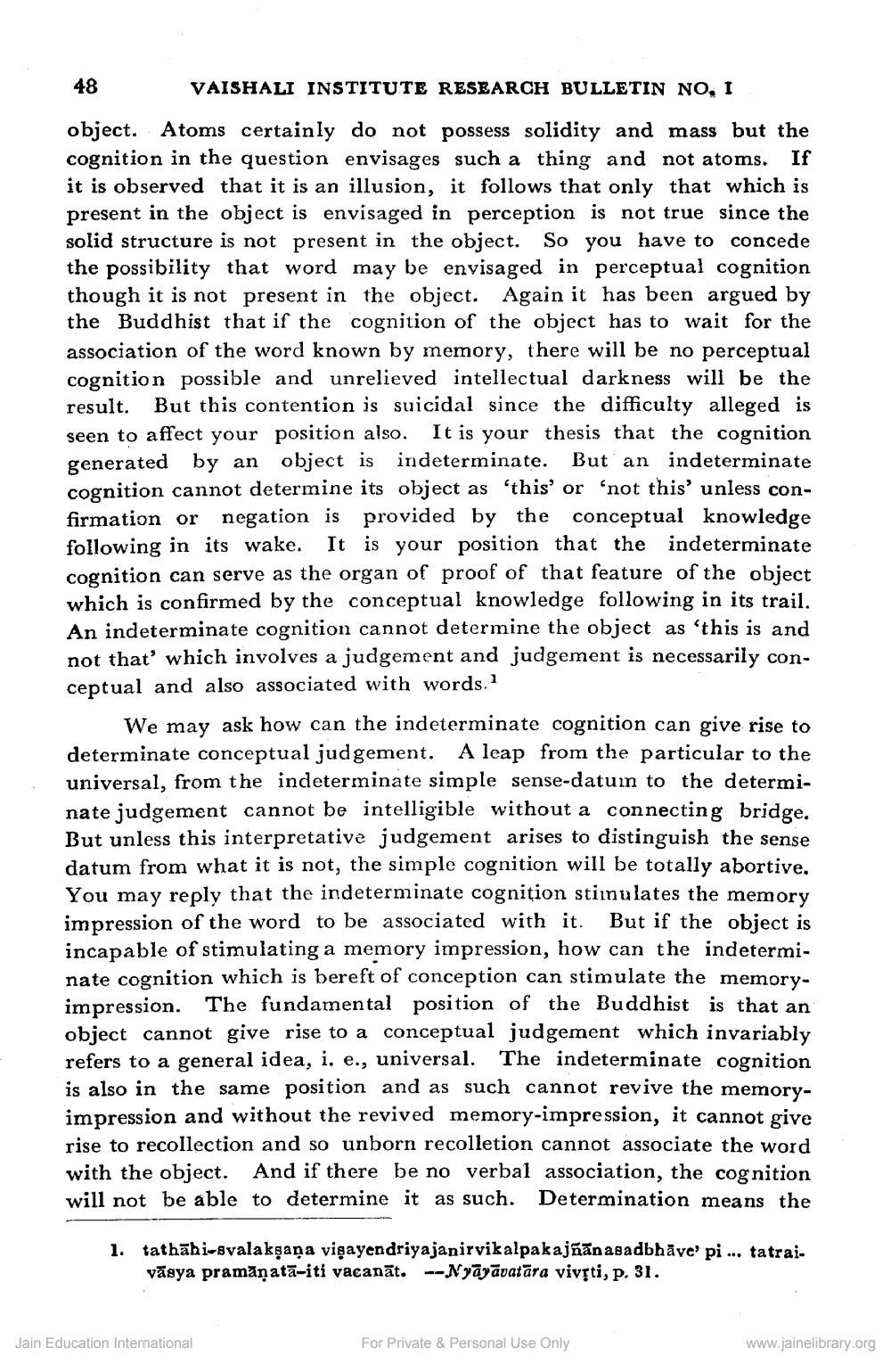________________
48
VAISHALI INSTITUTE RESEARCH BULLETIN NO, I
If
object. Atoms certainly do not possess solidity and mass but the cognition in the question envisages such a thing and not atoms. it is observed that it is an illusion, it follows that only that which is present in the object is envisaged in perception is not true since the solid structure is not present in the object. So you have to concede the possibility that word may be envisaged in perceptual cognition though it is not present in the object. Again it has been argued by the Buddhist that if the cognition of the object has to wait for the association of the word known by memory, there will be no perceptual cognition possible and unrelieved intellectual darkness will be the result. But this contention is suicidal since the difficulty alleged is seen to affect your position also. It is your thesis that the cognition generated by an object is indeterminate. But an indeterminate cognition cannot determine its object as 'this' or 'not this' unless confirmation or negation is provided by the conceptual knowledge following in its wake. It is your position that the indeterminate cognition can serve as the organ of proof of that feature of the object which is confirmed by the conceptual knowledge following in its trail. An indeterminate cognition cannot determine the object as 'this is and not that' which involves a judgement and judgement is necessarily conceptual and also associated with words.1
We may ask how can the indeterminate cognition can give rise to determinate conceptual judgement. A leap from the particular to the universal, from the indeterminate simple sense-datum to the determinate judgement cannot be intelligible without a connecting bridge. But unless this interpretative judgement arises to distinguish the sense datum from what it is not, the simple cognition will be totally abortive. You may reply that the indeterminate cognition stimulates the memory impression of the word to be associated with it. But if the object is incapable of stimulating a memory impression, how can the indeterminate cognition which is bereft of conception can stimulate the memoryimpression. The fundamental position of the Buddhist is that an object cannot give rise to a conceptual judgement which invariably refers to a general idea, i. e., universal. The indeterminate cognition is also in the same position and as such cannot revive the memoryimpression and without the revived memory-impression, it cannot give rise to recollection and so unborn recolletion cannot associate the word with the object. And if there be no verbal association, the cognition will not be able to determine it as such. Determination means the
1. tathāhi-svalakṣaṇa visayendriyajanirvik alpakajñānasadbhāve' pi... tatraivasya pramāṇatā-iti vacanāt. --Nyāyāvatāra vivṛti, p. 31.
Jain Education International
For Private & Personal Use Only
www.jainelibrary.org




